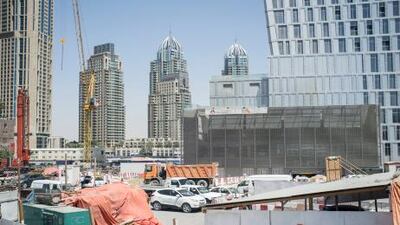DUBAI // New construction projects in the emirate will need to meet 79 new compulsory specifications from next year, the civic body has said.
The new specifications all concern improving the energy efficiency and carbon footprint of buildings.
"These 79 points are already mandatory for all government buildings," explained Abdulla Rafia, assistant director general of planning and engineering at Dubai Municipality. "Now we are implementing regulations to move from voluntary to mandatory for the private sector."
Mr Rafia made the announcement yesterday at a seminar on new sustainable initiatives in the private sector.
"It's nice to see that there is commitment, awareness and communication from the private sector, the public and the government entities," he said.
The new regulations will be released later in the year and will be implemented at the start of the new year.
Something as simple as good wall and roof insulation can go a long way to improving a building's energy efficiency.
"GCC countries are among the highest electricity consumers in the world, and 70 to 80 per cent is from residential usage, of which 60 to 70 per cent is for air conditioning," said Gary Seabrook, general manager for Caparol-Dubai, an international building materials developer. "Wall and roof insulation can reduce your energy consumption by up to 30 per cent."
He said many contractors were only concerned with completing the project as quick as possible and maximising the return on investment. "Now there is a change in mentality towards making things sustainable - we are finally on the right track," he said.
External Thermal Insulation Composite Systems (ETICS) are currently the most efficient and cost-effective way to improve a building's energy consumption.
"ETICS is a significant contributor to meet energy efficiency requirements in the Middle East," said Mr Seabrook. "It is also the only system we have for retrofitting old buildings."
